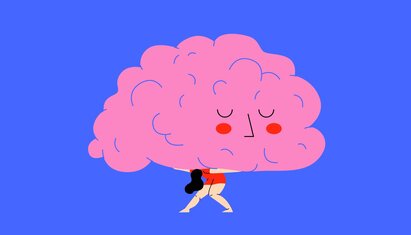Mental filtering worksheet


Published May 28, 2025

Self-reflection worksheets are valuable tools that mental health clinicians and therapists can share with clients to support therapeutic outcomes.
Self-reflection can have a positive impact on mental health outcomes, supporting emotion regulation and enhancing relationships.
This guide to self-reflection worksheets gives mental health therapists a brief overview of the benefits of self-reflection and provides examples of self-reflection sheets.
You can also download a printable daily reflection worksheet to save to your electronic health record (EHR) for repeated use with clients.
Self-reflection is the practice of examining thoughts, actions, and feelings.
It can be a helpful strategy to practice daily, reflecting on how the day progressed, working through challenges, developing a deeper understanding of oneself, acknowledging accomplishments, and identifying problems and areas for growth.
Self-reflection can be a powerful practice with benefits such as:
Self-reflection journaling can help clients better understand the connections between beliefs, thoughts, and behaviors, identify maladaptive patterns, and develop strategies for improvement.
Reflecting on life experiences can help process challenging emotions into adaptive responses, strengthening emotional regulation skills.
Reflection exercises, like values reflection activity worksheets, can help clients clarify who they are and what’s important to them so they can engage in more aligned behaviors.
Self-reflection helps clarify one's perceived skills, traits, and values. These insights can help with decision-making, receiving or rejecting feedback, and taking effective action.
Self-reflection can help clients to understand perspectives, get to the root of an issue they’ve been struggling with, or simply clarify boundaries.
It can also help them better understand and perceive social cues, which can enhance communication skills in relationships.
Self-reflection keeps clients accountable to their goals and values, reinforcing their ability to set and achieve goals. This can be as simple as identifying a problem through journaling, attempting to resolve the issue, and reflecting on progress.
Self-reflection and the ability to regulate emotions, gain self-awareness, and gain insight are essential to successful therapeutic outcomes.
Conversely, too much self-reflection can lead to self-criticism, resentment, and rumination, which can be harmful to one's health and well-being. Too little self-reflection can also have a negative effect on mental health.
There are several types of self-reflection worksheets and exercises clients may find beneficial, including:
Clients may find the following tips helpful in establishing a self-reflection practice:
Therapists can use the self-reflection worksheets in several ways.
You may provide it as a handout to help clients recall what you discussed in session. Or, you might instruct clients to use the worksheet and prompts to establish a daily reflection practice.
The self-reflection sheet can also be for taking notes about a self-reflection practice, so clients can report their insights and observations to their therapist in their next session.
SimplePractice is HIPAA-compliant practice management software with everything you need to run your practice built into the platform—from booking and scheduling to insurance and client billing.
If you’ve been considering switching to an EHR system, SimplePractice empowers you to streamline appointment bookings, reminders, and rescheduling and simplify the billing and coding process—so you get more time for the things that matter most to you.
Try SimplePractice free for 30 days. No credit card required.
Proudly made in Santa Monica, CA © 2026 SimplePractice, LLC
Proudly made in Santa Monica, CA © 2026
SimplePractice, LLC